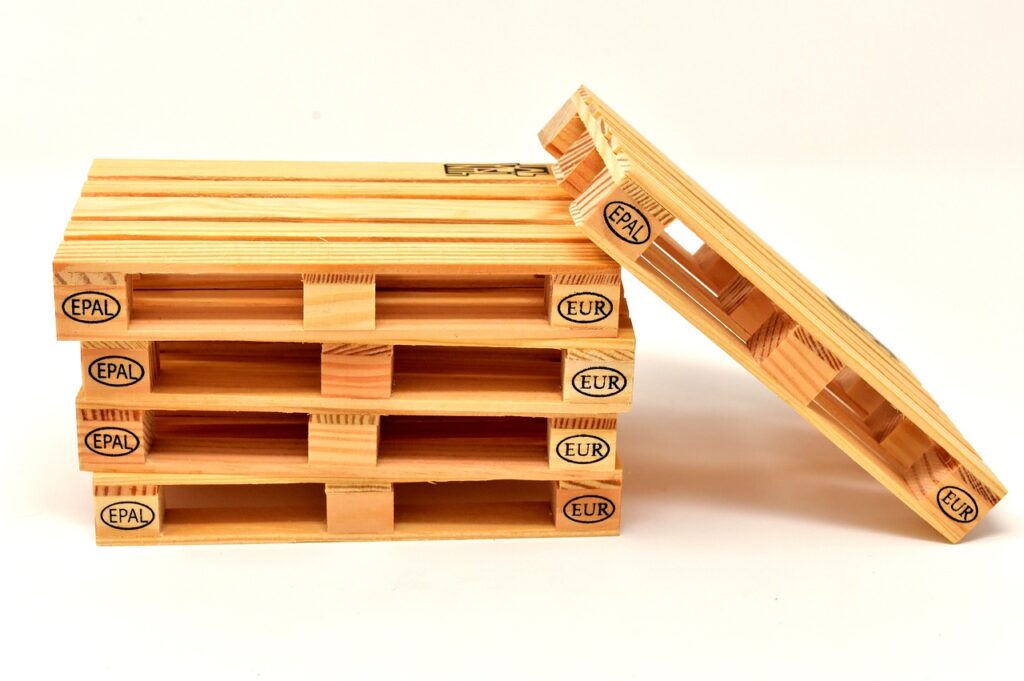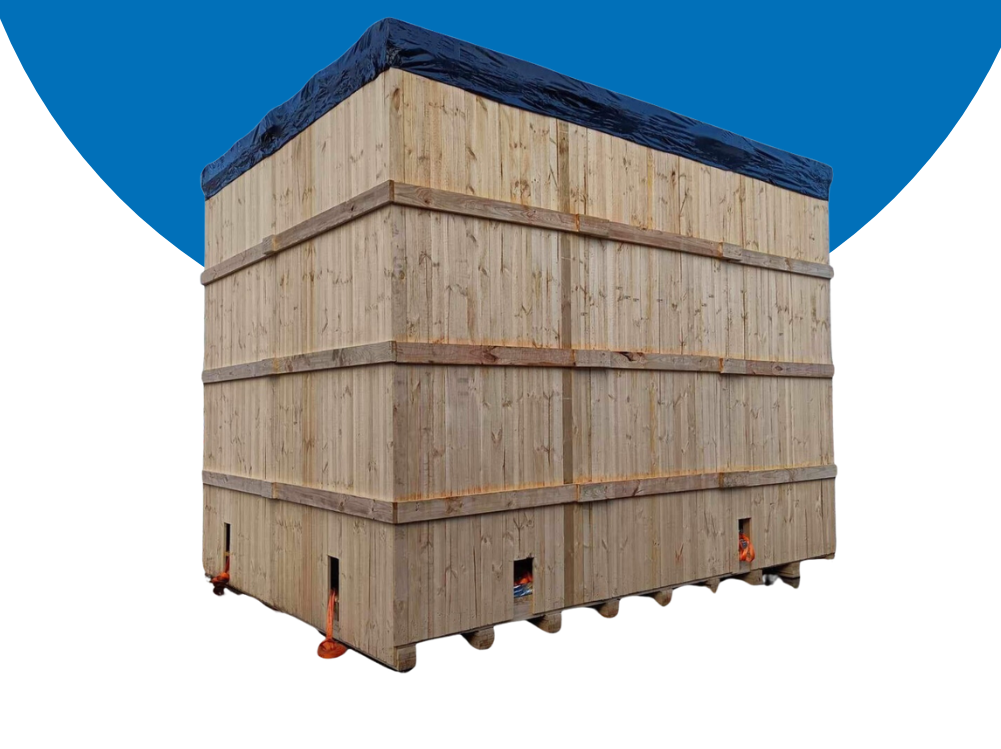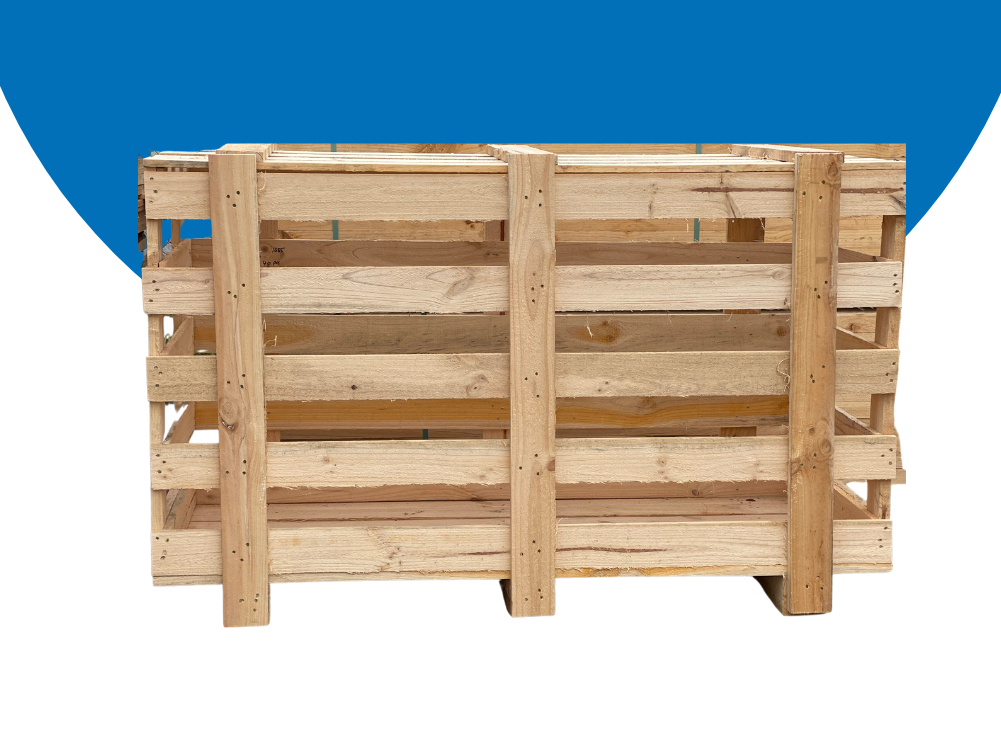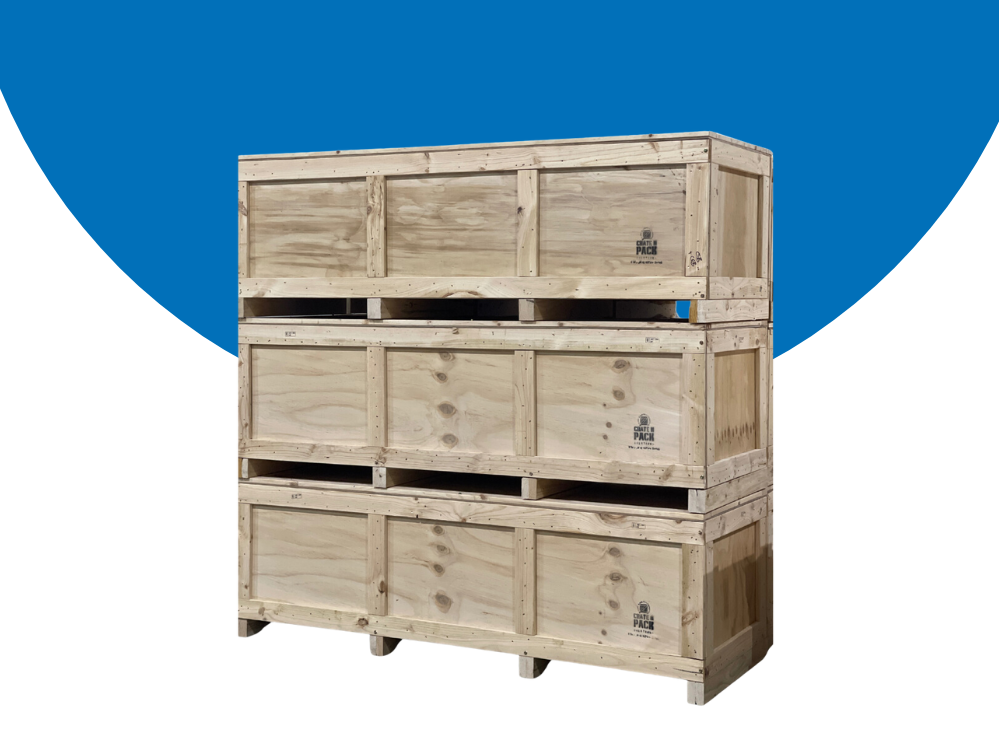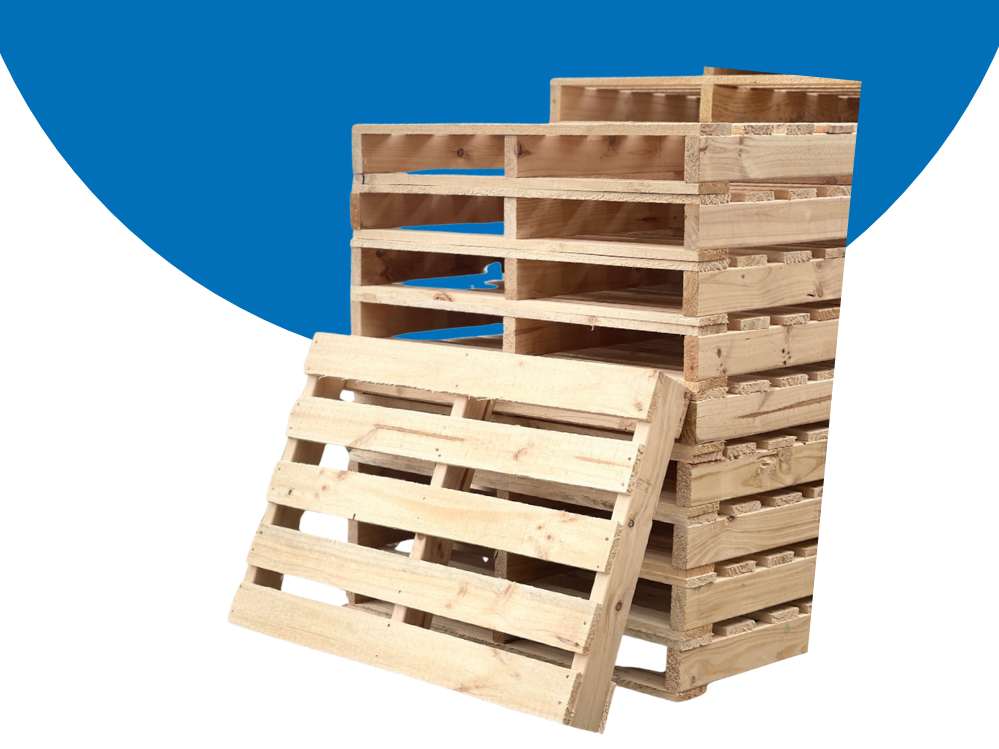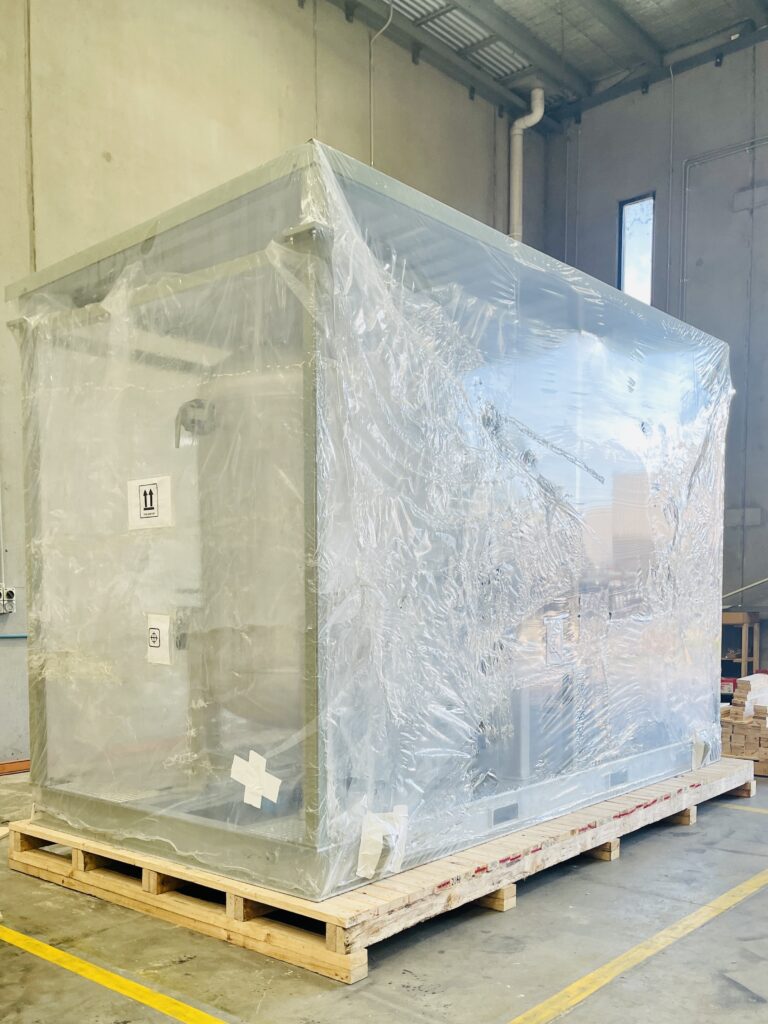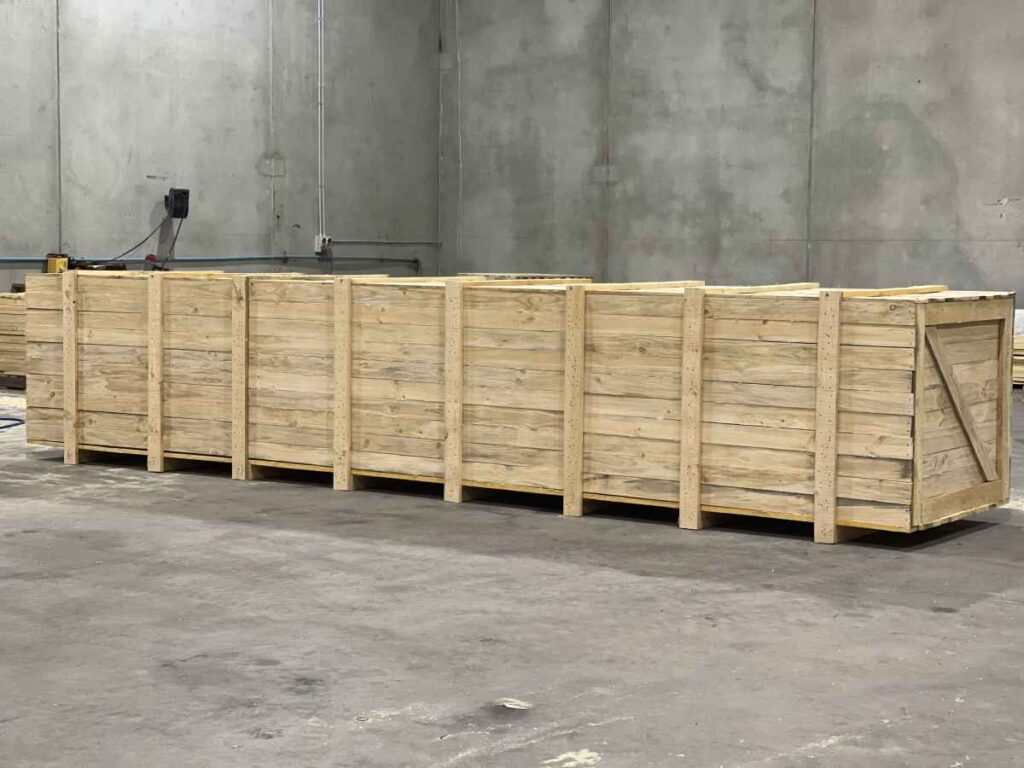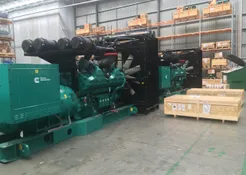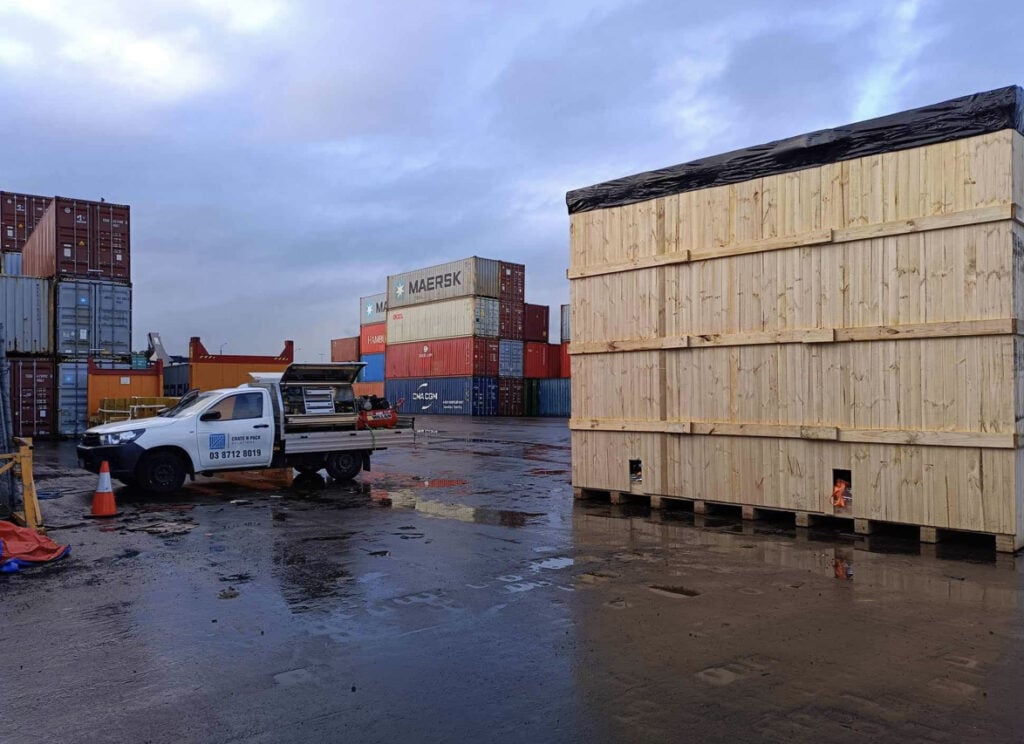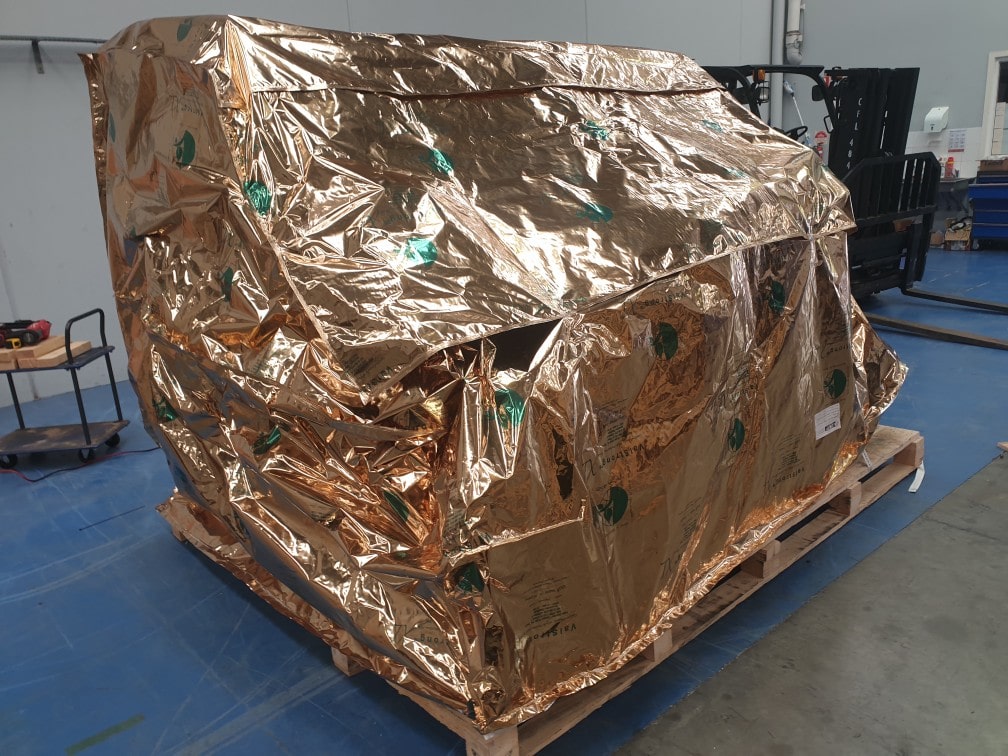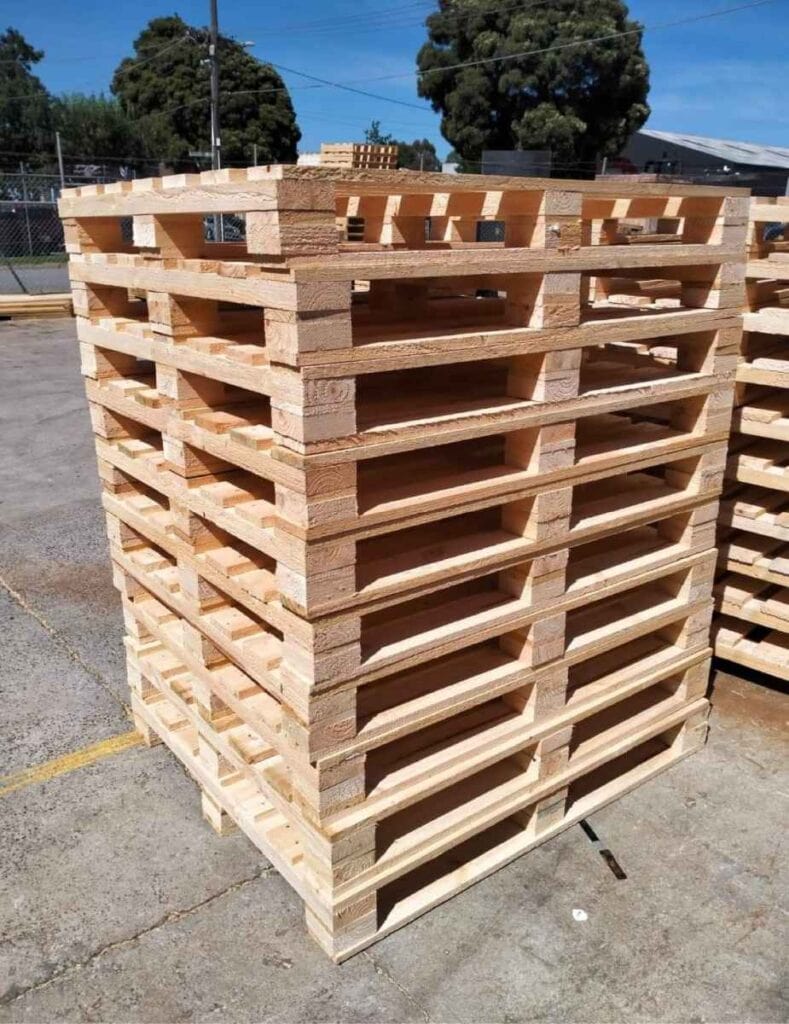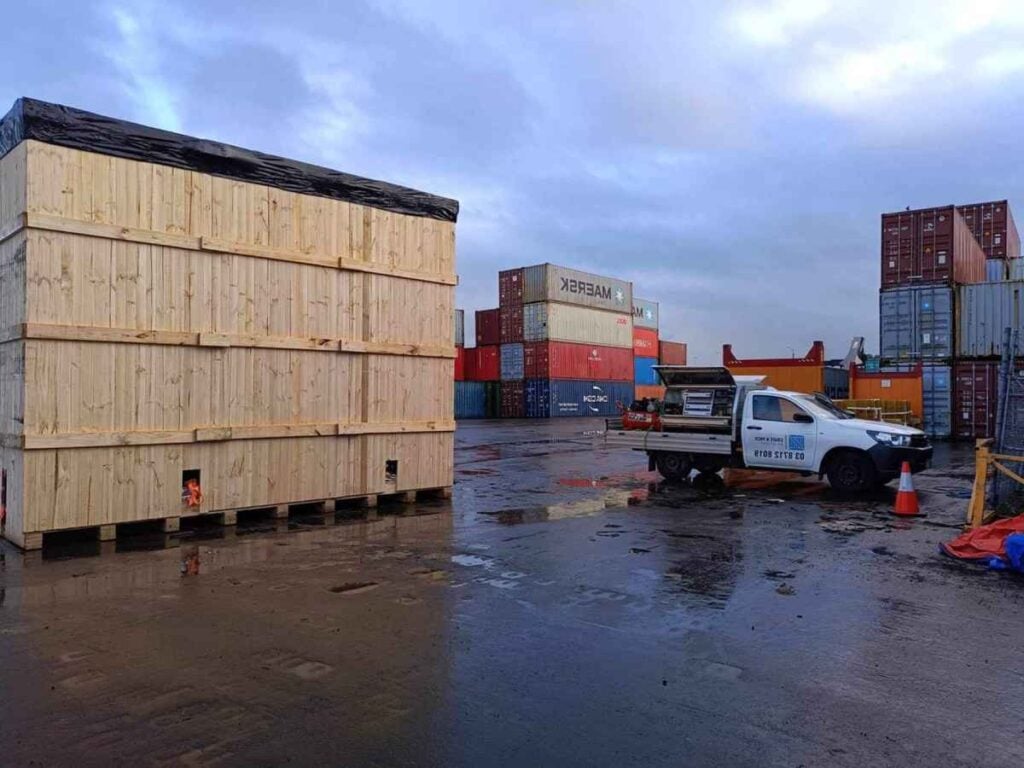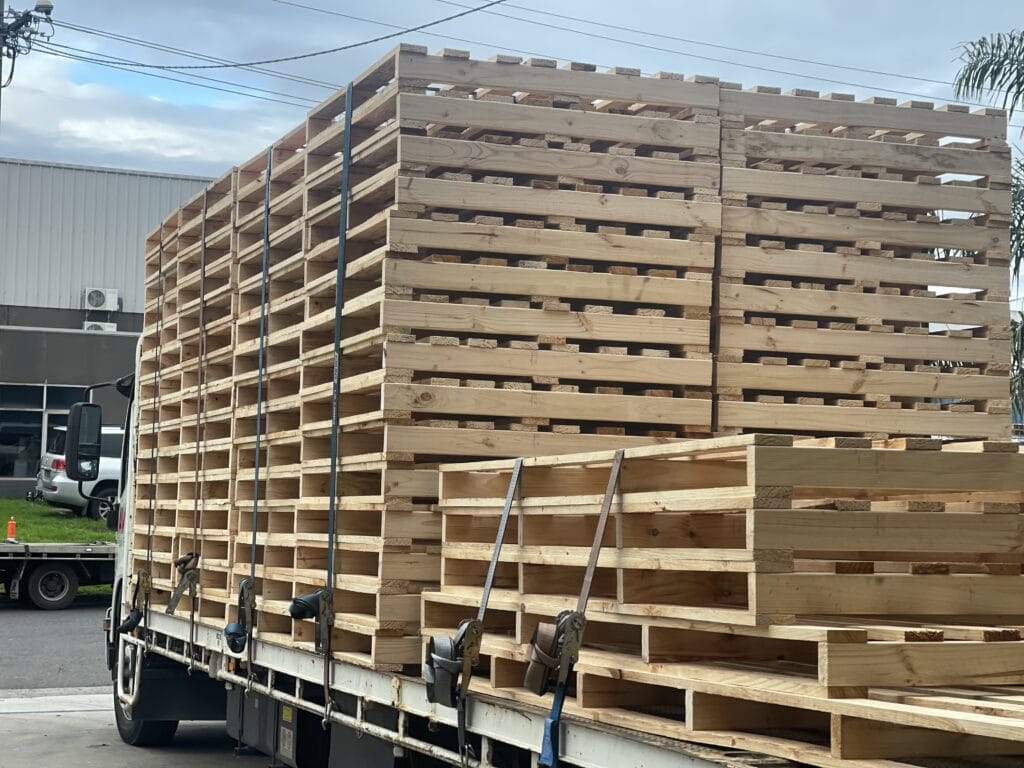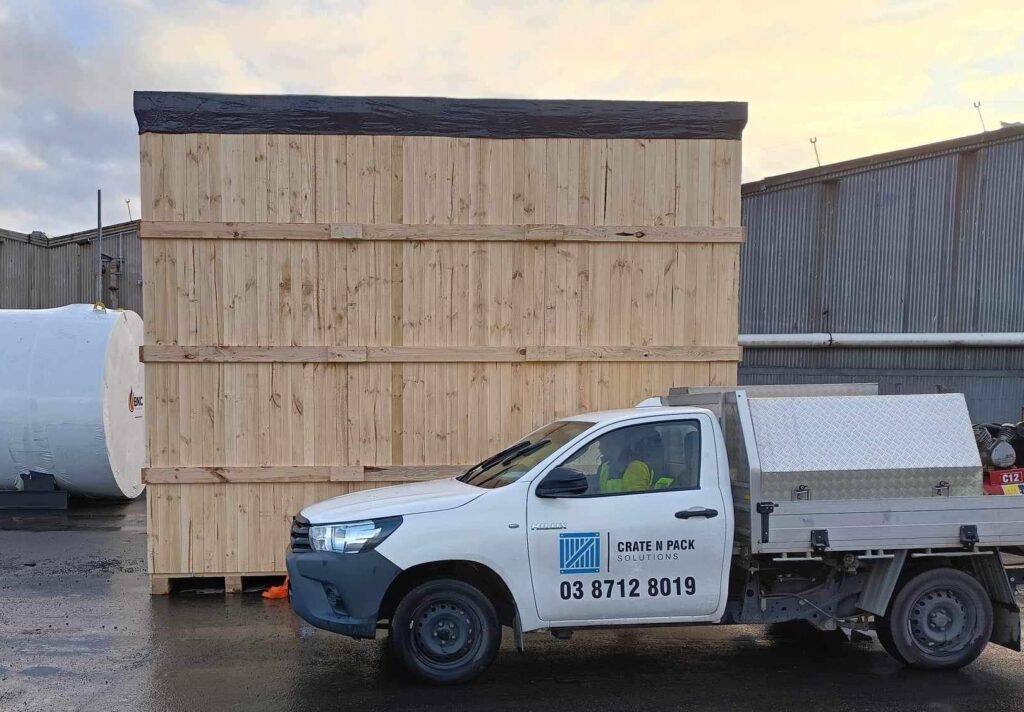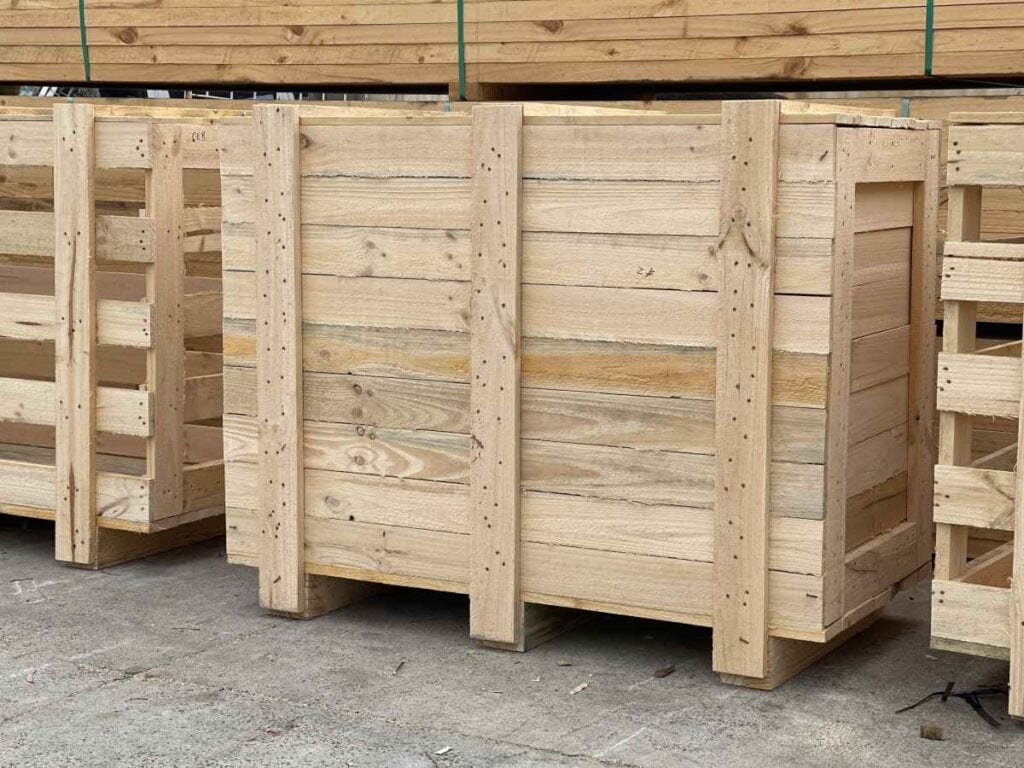What Exactly is an Australian Standard Pallet?
When it comes to logistics and supply chain management, pallets are a crucial component in the efficient handling and transportation of goods. In Australia, the concept of standardisation plays a significant role in ensuring consistency and compatibility across various sectors. This blog delves into what constitutes an Australian Standard Pallet, its specifications, and why it’s essential for businesses involved in shipping, warehousing, and distribution.
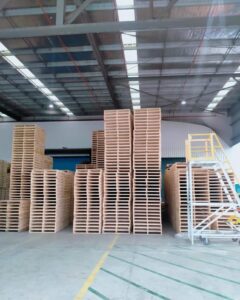
Understanding Australian Standard Pallets
Australian Standard Pallets are a benchmark in the pallet industry, designed to meet specific guidelines set by Australian standards. These pallets are vital for maintaining efficiency and safety in the transportation and storage of goods.
Dimensions and Specifications
The Australian Standard Pallet, often referred to as the AS 4060-2012 pallet, is standardized to facilitate seamless operations in logistics. Here are the key dimensions:
- Length: 1165 mm (46 inches)
- Width: 1165 mm (46 inches)
- Height: Typically between 140 mm and 160 mm (5.5 inches to 6.3 inches)
These dimensions ensure that the pallet fits perfectly with Australian racking systems and transportation methods, reducing the risk of handling issues and optimizing space utilization.
Materials and Construction
Australian Standard Pallets are usually constructed from wood, but they can also be made from plastic or metal, depending on the requirements of the industry. Here’s a closer look at the materials:
- Wooden Pallets: These are the most common and are typically made from hardwood or softwood. Wooden pallets are known for their strength and durability. They are also relatively easy to repair and maintain.
- Plastic Pallets: These are used in environments where hygiene and resistance to moisture are critical. They are lightweight, easy to clean, and do not splinter or crack like wooden pallets.
- Metal Pallets: Less common, metal pallets offer exceptional strength and durability, suitable for heavy-duty applications.
Standardisation and Its Importance
The Australian Standard Pallet is designed to ensure uniformity in pallet dimensions and construction, which is crucial for several reasons:
- Compatibility: Standard pallets fit seamlessly with Australian racking systems and transport vehicles, reducing the risk of damage during transit and handling.
- Efficiency: Standardization allows for more efficient stacking, storage, and transportation, optimizing space and reducing costs.
- Safety: Consistent dimensions and construction reduce the risk of accidents and injuries related to pallet handling.
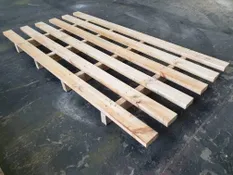
Benefits of Using Australian Standard Pallets
1. Improved Logistics Efficiency: Standard pallets facilitate smoother operations in warehouses, distribution centers, and transport networks. Their uniform size ensures compatibility with automated systems and handling equipment.
2. Cost Savings: By using standard pallets, businesses can reduce costs associated with custom pallet manufacturing and handling. Standard pallets are often more readily available and cheaper to replace or repair.
3. Enhanced Safety: Consistent pallet sizes and materials help prevent accidents and damage during handling and transportation. This leads to fewer product losses and fewer workplace injuries.
4. Regulatory Compliance: Adhering to Australian standards helps businesses comply with industry regulations and guidelines, ensuring they meet legal requirements for packaging and shipping.
Applications of Australian Standard Pallets
Australian Standard Pallets are used across various industries, including:
- Retail: For transporting and storing goods in supermarkets, department stores, and online retail warehouses.
- Manufacturing: In factories for moving raw materials and finished products.
- Logistics: In distribution centers and freight companies for efficient handling and transportation of goods.
- Agriculture: For moving agricultural products, including produce and livestock feed.
Choosing the Right Pallet for Your Needs
While Australian Standard Pallets are widely used, businesses may also require specialized pallets based on their specific needs:
- Heavy-Duty Pallets: For industries that handle heavy or oversized items, such as machinery and equipment.
- Custom Pallets: Tailored to fit unique product dimensions or specific handling requirements.
- Export Pallets: Designed to meet international shipping standards, including ISPM 15 certification for exporting timber pallets.
Conclusion
Australian Standard Pallets play a pivotal role in ensuring the efficiency, safety, and cost-effectiveness of logistics and supply chain operations. By adhering to these standards, businesses can optimize their operations, reduce costs, and ensure compliance with industry regulations. Whether you’re involved in retail, manufacturing, or logistics, understanding and utilizing standard pallets can lead to significant operational benefits.
For more information on Australian Standard Pallets and how they can improve your logistics operations, contact us today. We offer a range of pallet solutions to meet your specific needs, ensuring that your goods are handled and transported efficiently and safely.
Content Summary
- Introduction to Australian Standard Pallets
- Importance of standardisation in logistics.
- Key role in shipping, warehousing, and distribution.
- Dimensions and Specifications
- Length: 1165 mm (46 inches)
- Width: 1165 mm (46 inches)
- Height: 140 mm to 160 mm (5.5 inches to 6.3 inches)
- Materials and Construction
- Wooden Pallets: Strength, durability, repairability.
- Plastic Pallets: Hygiene, moisture resistance, lightweight.
- Metal Pallets: Strength and durability for heavy-duty applications.
- Benefits of Australian Standard Pallets
- Improved logistics efficiency.
- Cost savings on pallet manufacturing and handling.
- Enhanced safety in handling and transportation.
- Compliance with industry regulations.
- Applications
- Retail, manufacturing, logistics, and agriculture.
- Choosing the Right Pallet
- Heavy-Duty Pallets: For heavy or oversized items.
- Custom Pallets: For unique dimensions or handling requirements.
- Export Pallets: Meeting international shipping standards and ISPM 15 certification.
- Conclusion
- Benefits of adhering to Australian standards.
- Contact for more information and pallet solutions.
Frequently Asked Questions
Pallets are flat structures used to support goods in a stable manner during transport, storage, and handling. They are crucial in logistics because they allow for the efficient movement of large quantities of goods, reduce handling time, and minimize damage during transit.
There are several types of pallets, including:
- Wooden Pallets: Traditional, versatile, and cost-effective.
- Custom Pallets: Tailored to specific dimensions and load requirements.
- Timber Pallets: Eco-friendly and sustainable, made from renewable resources.
- Export Pallets: Compliant with international shipping regulations like ISPM-15.
Pallets can be made from various materials, including:
- Wood: The most common and economical option.
- Plastic: Durable, lightweight, and resistant to moisture and chemicals.
- Metal: Strong and suitable for heavy loads or industrial uses.
- Composite: A mix of materials that offer specific benefits, like enhanced durability or reduced weight.
Timber pallets offer several advantages, including durability, cost-effectiveness, ease of repair, and environmental benefits through recycling and reuse. They’re also widely accepted in most industries, making them a versatile choice.
When selecting a pallet, consider factors such as the weight and dimensions of your goods, the type of transport (domestic or international), and any specific industry regulations. Custom pallets can be designed to meet unique requirements.
Export pallets are specially designed to meet international shipping regulations, particularly the ISPM-15 standard, which requires pallets to be heat-treated or fumigated to prevent the spread of pests. These pallets are essential for ensuring compliance with global trade laws.
Recycling pallets reduces waste, conserves resources, and lowers the environmental impact of manufacturing new pallets. It also promotes a circular economy, where materials are reused rather than discarded.
The most common pallet size in Australia is the Australian Standard Pallet, which measures 1165mm x 1165mm. Other standard sizes include the Euro Pallet (1200mm x 800mm) and the North American Pallet (1200mm x 1000mm).
Key factors to consider include the supplier’s ability to offer high-quality pallets, customization options, compliance with industry standards, sustainability practices, and the ability to meet your delivery timelines.
At Crate N Pack Solutions, we pride ourselves on offering fast lead times, ensuring that you receive your pallets promptly without compromising on quality. This is especially important for businesses that need to maintain a steady supply chain.
Crate N Pack Solutions offers high-quality, customizable pallets designed to meet a wide range of needs. Our commitment to sustainability, fast delivery, and exceptional customer service makes us a trusted partner in the industry.
Yes, pallets can be fully customized to match your specific requirements, including size, load capacity, and material. Custom pallets ensure the safe and efficient transport of your goods.
Wooden pallets are biodegradable, recyclable, and made from renewable resources. They contribute to reducing carbon footprints by being reusable and repairable, making them an environmentally friendly choice.
Pallets are designed to meet specific load capacities and durability requirements. The construction involves selecting the appropriate material, assembling the pallet to distribute weight evenly, and ensuring it can withstand the stresses of transport and handling.
Our wide range of export crates are manufactured with heat treated timber and ISPM 15 Certified for export, our timber crates and cases are available flat packed or fully assembled. With fast lead times and exceptional customer service, our timber packaging has you covered!
We can design you a wooden crate that fits your product perfectly. With a wide range of crate styles and exceptional customer service, experience the difference with Crate n Pack Solutions, Melbourne's favourite shipping crate supplier.
Our plywood boxes/plywood cases are lightweight and re-usable. With our wide range of optional extras such as branding options, lockable castor wheels, locks, hinges and clasps, help make our ply cases the perfect solution for trade shows and airfreight.
Our pallet range include; standard pallets, export pallets, machine base pallets and custom pallets. With trucks delivering daily all across Melbourne, we guarantee delivery on-time, every-time. Small or bulk pallet orders welcome.
Address
Mailing address to reach us.
Crate n Pack Solutions 36 Nicholas Drive, Dandenong South, Melbourne, Victoria, Australia 3175
Have a Question?
Ask away, we stand ready to assist.

